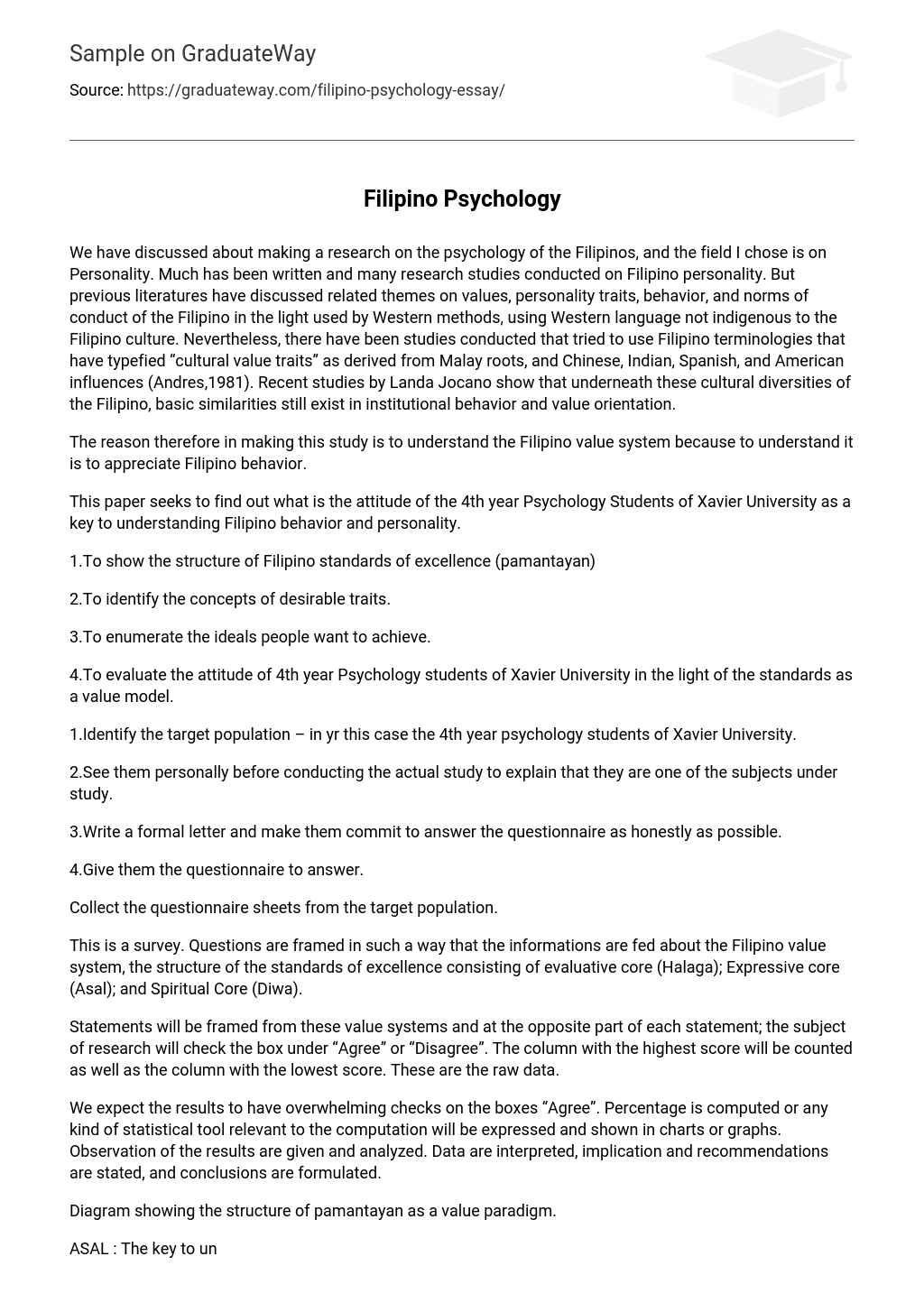We have discussed the possibility of conducting research on Filipino psychology, specifically focusing on Personality. Previous literature and research studies have extensively examined the personality traits, values, behavior, and norms of Filipinos. However, these studies primarily used Western methods and language which are not native to Filipino culture. Nevertheless, some studies attempted to incorporate Filipino terminologies with cultural value traits rooted in Malay, Chinese, Indian, Spanish, and American influences (Andres, 1981). Recent studies by Landa Jocano revealed that despite diverse cultural practices among Filipinos, there are underlying similarities in their institutional behavior and value orientation.
The purpose of this study is to comprehend the Filipino value system in order to appreciate Filipino behavior.
This paper aims to determine the attitude of 4th year Psychology Students at Xavier University. The purpose is to gain insight into Filipino behavior and personality.
To illustrate the framework of Filipino standards of excellence (pamantayan)
2. The goal is to determine the characteristics that are considered preferable.
3. The purpose is to list the goals individuals aspire to attain.
4. To assess the perspective of senior Psychology students at Xavier University regarding the standards as a model of values.
Identify the target population, which in this case are the 4th year psychology students of Xavier University.
Before conducting the actual study, it is important to personally see the subjects involved and explain to them that they are a part of the study.
3. Compose a formal letter in which you request their sincere and truthful response to the questionnaire.
4. Give them the questionnaire for completion.
Obtain the survey forms from the target audience.
The purpose of this survey is to collect data on the Filipino value system. Its main focus is on the structure of the standards of excellence, which consist of the evaluative core (Halaga), expressive core (Asal), and spiritual core (Diwa).
Statements will be created using these value systems, and the research subject will indicate either “Agree” or “Disagree” under the opposite end of each statement. The column with the highest score and the column with the lowest score will be taken into account as they represent the raw data.
Our expectations include a majority of “Agree” responses, which will be expressed and shown graphically using a percentage or other statistical tool. The results are observed, analyzed, and interpreted, leading to implications, recommendations, and conclusions.
The structure of pamantayan as a value paradigm is depicted in the diagram.
ASAL is the crucial factor in comprehending Filipino behavior and personality.
I am a fourth year student at Xavier University in Cagayan de Oro City, Philippines. I am currently studying Psychology.





